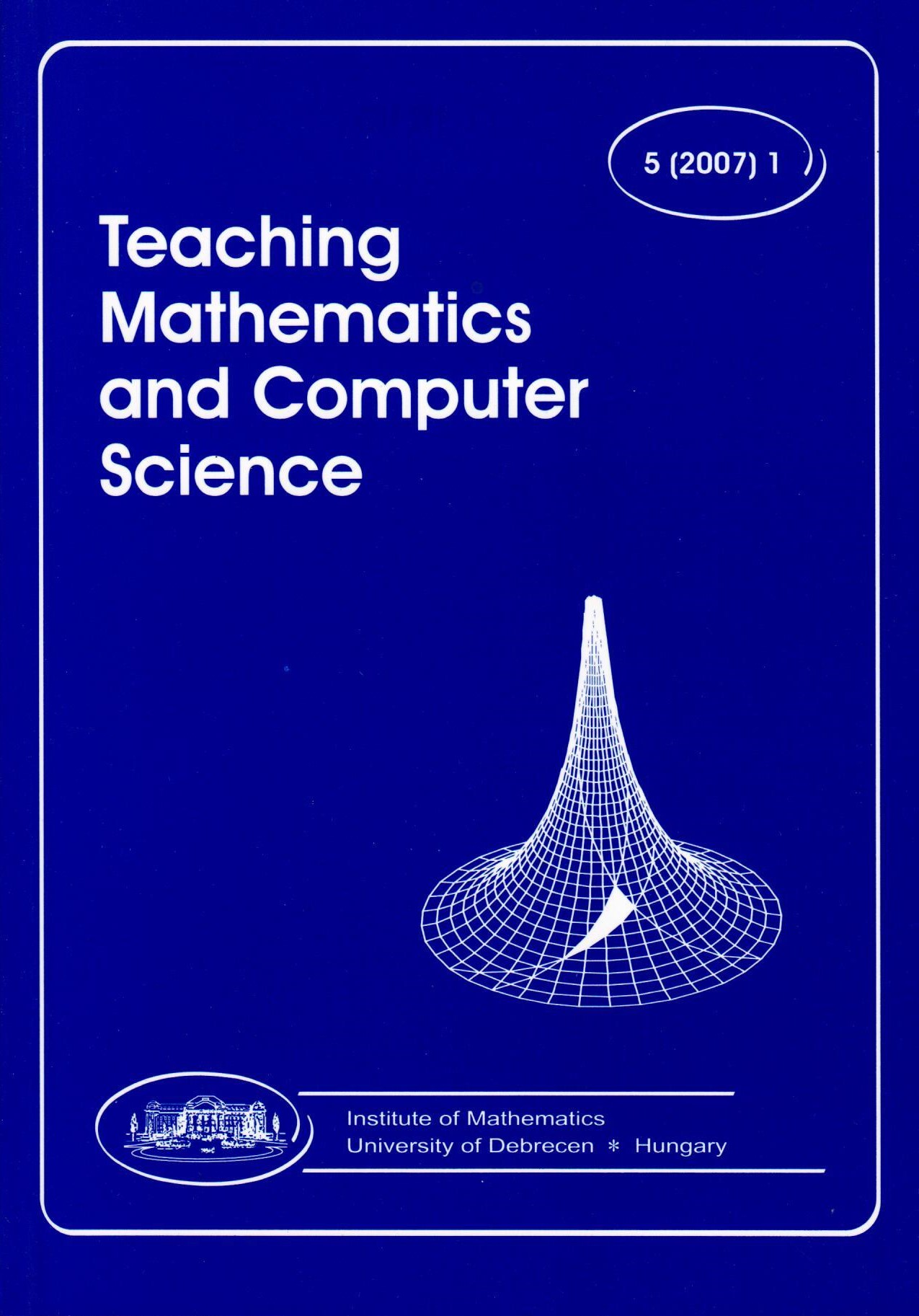Articles
Learning and Knowledge: The results, lessons and consequences of a development experiment on establishing the concept of length and perimeter
Published:
2007-06-01
Author
View
Keywords
License
Copyright (c) 2007 Margit Tarcsi

This work is licensed under a Creative Commons Attribution 4.0 International License.
How To Cite
Selected Style:
APA
Tarcsi, M. (2007). Learning and Knowledge: The results, lessons and consequences of a development experiment on establishing the concept of length and perimeter. Teaching Mathematics and Computer Science, 5(1), 119-145. https://doi.org/10.5485/TMCS.2007.0148
Abstract
In the paper the four main stages of an experiment are described focusing on the question as to how much measuring the length and perimeter of various objects such as fences, buildings by old Hungarian units of measurements and standards contribute to the establishment of the concept of perimeter.
It has also been examined in what ways and to what extent the various forms of teaching such as frontal, group and pair and individual work contribute to the general knowledge, thinking, creativity and co-operation in this area.
It will also be shown to what extent folk tales, various activities and games have proved to be efficient in the teaching of the particular topic.
Every stage of the experiment was started and closed with a test in order to find out whether the development was successful and children managed to gain lasting knowledge in this particular area.
It has also been examined in what ways and to what extent the various forms of teaching such as frontal, group and pair and individual work contribute to the general knowledge, thinking, creativity and co-operation in this area.
It will also be shown to what extent folk tales, various activities and games have proved to be efficient in the teaching of the particular topic.
Every stage of the experiment was started and closed with a test in order to find out whether the development was successful and children managed to gain lasting knowledge in this particular area.

 https://doi.org/10.5485/TMCS.2007.0148
https://doi.org/10.5485/TMCS.2007.0148






